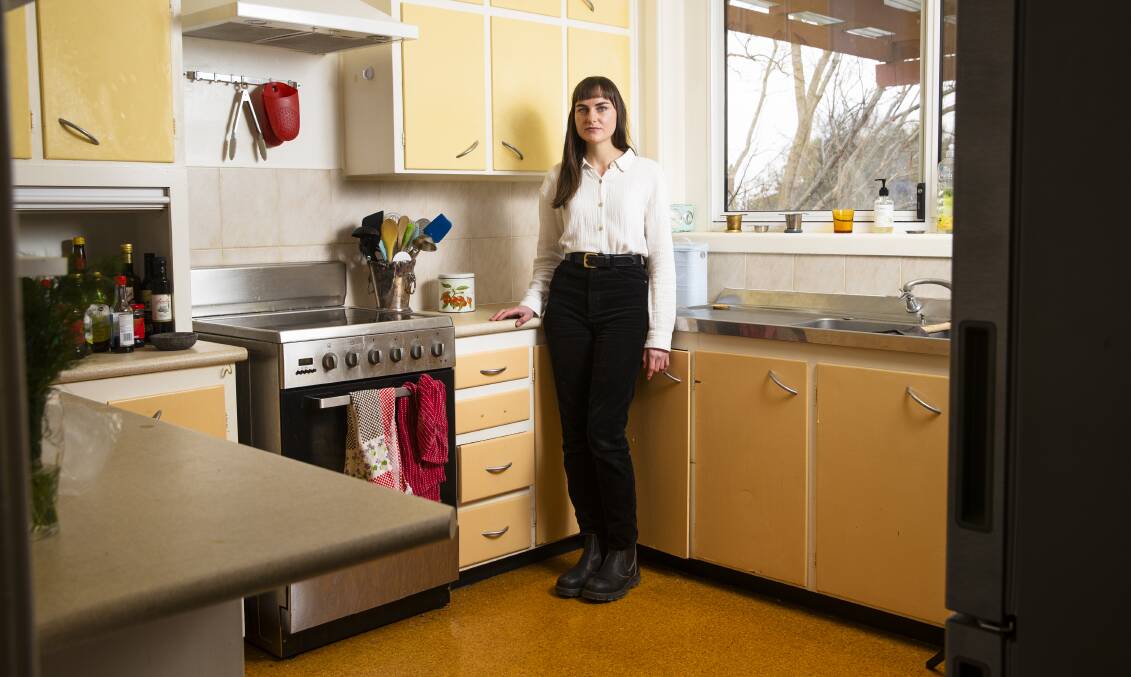
Prospective homeowners like Elle Lawless are facing a dilemma when considering new apartments, with developers connecting to gas despite a future ban in the ACT.
Display kitchens fitted with gas cooktops for apartments not scheduled to be completed for several years, will quickly become an added expense for new owners stuck with the cost of switching over.
Ms Lawless said only a small number of developers she'd met with were planning all-electric builds, including W2 and Woden Green both in Woden Valley.
Conservation Council ACT Region executive director Helen Oakey said thousands of apartments being sold now were expected to be hooked up to gas.
"Developers are continuing to build using gas hot water, locking residents into consuming fossil fuels and placing the burden of future transition costs onto apartment owners," she said.
"The construction sector needs to pivot more quickly towards all-electric developments, instead of continuing with business as usual."
What are the costs?
There are more than 130,000 gas users in the ACT, more than 127,000 of which are residential.
The cost to homeowners to abolish their gas connection is around $600. The logistics for apartment owners around doing so will be decided following public consultation later this year.
For a two-bedroom apartment using only gas, the cost to replace hot water, cooking and heating with electric appliances is around $7800, including installation. That's about $1000 more than installing gas alternatives, according to ACT government modelling.
The average two-person household will save $450 on heating after switching from gas to electricity over 15 years. However, the couple will spend $629 more on electric cooking and $1500 more on hot water.
Savings are made with the hypothetical installation of solar, with a 1-kilowatt system saving $1938 on heating and costing $476 more on cooking and $727 more on hot water.
Households all skip the $3060 cost of just being connected to gas, putting a couple about $400 up without solar and $1933 with over 15 years.
Increased demand for gas from overseas since the war in Ukraine has also seen prices go up since ACT government modeling was completed.
For Ms Lawless the costs are just one important factor, with the environmental advocate also keen to reduce her carbon footprint.
"People my age, late 20s, early 30s, we do really care about our impact on the planet and we're already seeing the impacts of climate change right now," she said.
"It seems like the developers just aren't catching up."
Ms Oakey said irrespective of the government waiting until 2023 to ban new gas connections, developers should do what they can now to drive emissions down, instead of locking residents into appliances that won't be viable in the future.
"Getting established buildings off the gas grid will be challenging enough, without exacerbating the problem by building more gas-dependent apartments," she said.
We've made it a whole lot easier for you to have your say. Our new comment platform requires only one log-in to access articles and to join the discussion on The Canberra Times website. Find out how to register so you can enjoy civil, friendly and engaging discussions. See our moderation policy here.







